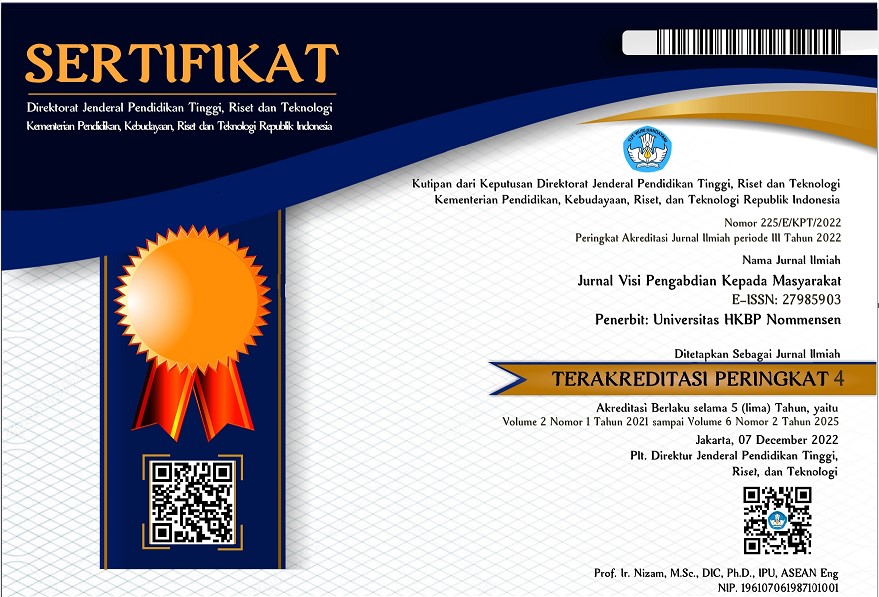Sosialisa Izin Air Bawah Tanah Dan Minuman Keras Kepada Pelaku Usaha
DOI:
https://doi.org/10.51622/pengabdian.v5i1.1361Keywords:
Izin Penggunaan,Tantangan,Pelaku usahaAbstract
The socialization of permits to use underground water and liquor to business actors is an understanding or education for business actors to understand the impact and advantages of having this permit. Not only the impact, but there are violations that will be obtained if you violate the rules that have been provided for by regional regulations, one of the most fatal is the closure of a place of business. Therefore, the socialization of permits related to groundwater and liquor is a challenge that needs to be monitored so that business actors become more knowledgeable and understand regarding the socialization of permits for the use of underground water and liquor.
Kata Kunci: Usage Permits, Challenges, Entrepreneurs
Downloads
References
Dinas Komunikasi dan Informatika Pemerintah Kabupaten Badung. 2010 - 2020. https://satpolpp.badungkab.go.id/galeri Di akses pada tanggal 15 Juli 2023 pukul 12.36 WITA
Kusmanto, H., & Warjio, W. (2019). Pentingnya Legalitas Usaha bagi Usaha Mikro Kecil dan Menengah.https://doi.org/10.24114/JUPIIS.V11I2.13583 Di akses pada tanggal 18 Juli 2023 pukul 02.59 WITA
Zulvikar, 2008, Minuman-Minuman Keras, https://zulv1ck4r.wordpress.com/2008/12/30/minum-minuman-keras/ Diakses 21 Juni 2023 pukul 18.59 WITA
Kumalasari, F. dan Satoto, Y. (2011) Teknis Praktis Mengolah Air Kotor Menjadi air Bersih Hingga Layak Minum. Bekasi: Laskar Askar
Effendi, Hefni. 2003. Telaah Kualitas Air : Bagi Pengelolaan Sumber Daya dan Lingkungan Perairan. Yogyakarta
Published
How to Cite
Issue
Section
Copyright (c) 2024 I Gusti Agung Ananda Putra, I Gede Yoga Bayu Priatama

This work is licensed under a Creative Commons Attribution 4.0 International License.












